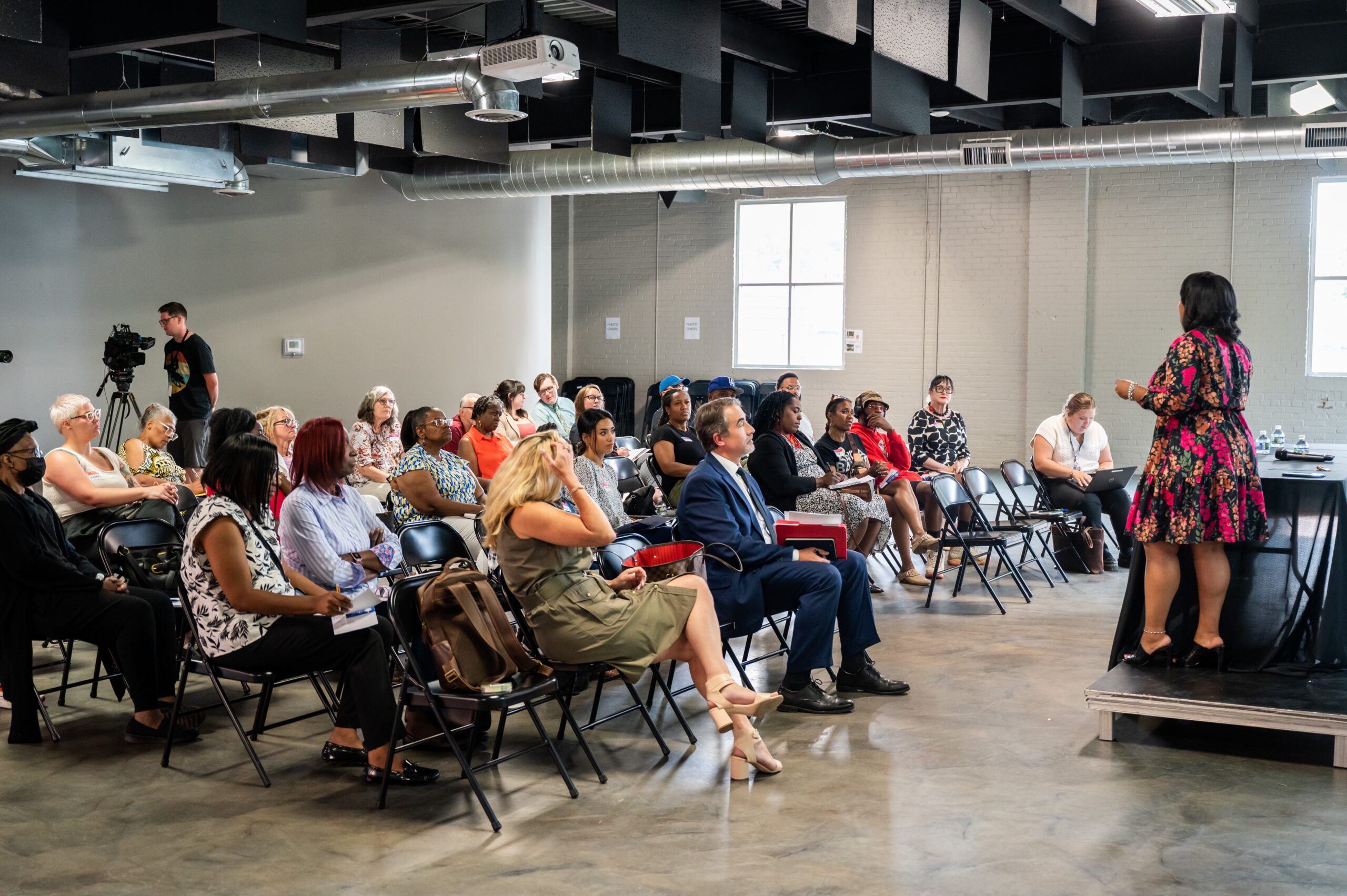GRAND RAPIDS, Mich., Aug. 2, 2023 — State Rep. Kristian Grant (D-Grand Rapids) brought together community members and stakeholders for an Urban Economic Development listening session yesterday. The event centered around ways to spur and improve economic development in urban areas in West Michigan.
“Back in March, I organized an urban economic development roundtable that brought together policymakers and stakeholders — my intention from the outset was to follow that event with listening sessions like the one I hosted in Grand Rapids,” Grant said. “This session was all about hearing from residents regarding what they need in order to thrive as individuals and as a community of people, as well as talking about the amazing resources available. Feedback from community members and small-business owners is an absolute key ingredient when it comes to bolstering economic development and smart urban planning. I want to thank each and every person who came out and shared their voices. I’m going to bring what I heard from all the amazing residents back with me to Lansing when I advocate for legislation to increase homeownership opportunities, create robust business corridors, and build our urban cores in Grand Rapids and across the state.”
Background: The three pillars that inform Rep. Grant’s urban economic philosophy are:
- Improving Housing: A focus on increasing homeownership opportunities and rental opportunities, including tactics that can increase pathways to ownership, affordable rental opportunities and investment in existing housing stock.
- Supporting Small Businesses and Workforce Development: Discussions on investing in small local businesses, creating thriving business corridors for them, and providing resources to help them scale up, while also attracting mid-size companies as employers in our urban core community. Also, looking at partnerships and programming for youth entering the workforce.
- Fostering Community Building and Placemaking: Discussions centering around the overall physical development of the urban cores, so that they better serve the current residents rather than displacing them. This includes removing blight and vacancy to provide community space, art and respect for the current culture. Also, addressing policy and programming around violence reduction and environmental issues.

